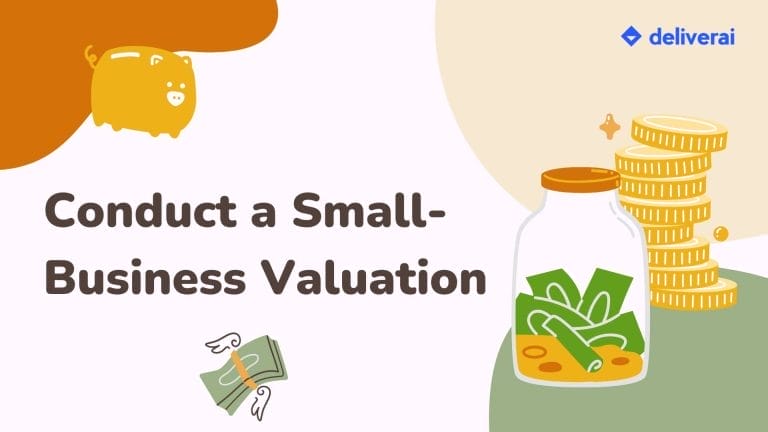As we move towards 2023, small businesses are poised to play a significant role in driving sustainability. This article outlines three effective strategies for enhancing your small business’s sustainability initiatives.
We delve into the importance of climate intelligence and adaptation, the advantages of B Corp Certification, and the significant impact of small-scale, cost-effective changes.
Through this discussion, we aim to provide businesses with practical, impactful solutions that not only reduce their environmental footprint but also present opportunities for growth and community enrichment.
Join us as we explore these innovative strategies for the advancement of sustainable practices in the small business sector.
Key Takeaways
- Incorporate climate intelligence and adaptation strategies to prepare for climate-related risks and natural disasters.
- Consider obtaining a B Corp Certification to showcase your commitment to stakeholders, the environment, and communities, and to access greater investment opportunities.
- Make small, affordable changes to better support communities and enrich them without significant financial investment.
- Reduce your carbon footprint by implementing energy-saving measures, optimizing resource usage, promoting sustainable transportation options, and minimizing waste through recycling.
Understanding Climate Intelligence
Comprehending climate intelligence is a critical first step towards integrating sustainable practices into your small business operations. This involves understanding the implications of climate data and utilizing climate intelligence applications to predict future environmental scenarios.
These applications can help you strategically plan and integrate sustainability measures into your business model. They offer insights into climate trends, risk assessments, and potential impacts on supply chains and consumer behavior.
Benefits of B Corp Certification
Transitioning from climate intelligence, another strategic move towards sustainability is seeking B Corp Certification, an accreditation that exemplifies a company’s commitment to environmental, social, and governance (ESG) standards. The impact of obtaining this certificate can significantly boost the reputation, credibility, and overall sustainability of your business.
To illustrate the B Corp Certification requirements and its impact, let’s consider the following:
| Requirements for B Corp Certification | Impact of B Corp Certification |
|---|---|
| Meet high ESG standards | Improved reputation and credibility |
| Transparency in business practices | Increased trust among stakeholders |
| Legal accountability to balance profit and purpose | Enhanced corporate responsibility |
| Undergo a rigorous assessment process | Demonstrable commitment to sustainability |
Securing B Corp Certification strategically positions your company as a leader in sustainable business practices, demonstrating an active commitment to a more equitable and sustainable economy.
Small Changes, Big Community Impact
Community-focused initiatives, even those that seem small or simple, can have a profound impact on local populations and significantly enhance your small business’s sustainability efforts. Small, affordable sustainability initiatives, such as reducing utility usage or partnering with local suppliers, can serve dual purposes. They not only reduce operational costs but also contribute to enriching communities by stimulating local economies.
It’s essential to view sustainability not as a cost, but a strategic investment. The goodwill generated through such actions often translates into customer loyalty, enhancing the business’s reputation. Therefore, even minor modifications in business operations can lead to significant benefits, both for the business and the community it serves, thereby creating a ripple effect of sustainable growth.
Reducing Your Business’s Carbon Footprint
By reducing your small business’s carbon footprint, you actively contribute to the global fight against climate change while simultaneously fostering a culture of sustainability within your organization. An analytical approach to implement this involves carbon offsetting, the use of renewable energy sources, and strategic resource management.
| Action | Benefit | Implementation |
|---|---|---|
| Carbon Offsetting | Compensates for emissions | Invest in environmental projects |
| Renewable Energy Sources | Reduces reliance on fossil fuels | Install solar panels, procure green energy |
| Efficient Resource Use | Minimizes waste | Optimize operations, promote recycling |
These strategic initiatives not only reduce your environmental impact but also position your business as a responsible and forward-thinking entity, therefore enhancing your reputation and fostering trust amongst stakeholders.
Sustainability as a Business Opportunity
Embracing sustainability presents a unique opportunity for small businesses to leverage environmental stewardship into tangible economic benefits. Sustainable business practices not only reflect a company’s commitment to the environment but also offer a strategic advantage. By implementing green business initiatives, businesses can attract a larger customer base that values environmental consciousness, gain a competitive edge, and potentially reduce operational costs.
Moreover, such practices can unlock new investment opportunities, as more investors are now prioritizing sustainability. Sustainable practices can also enhance brand reputation, create positive PR, and promote stakeholder engagement. Therefore, sustainability is not merely a trend, but an essential business strategy that can enhance profitability, business resilience, and long-term growth.
For small businesses, this presents a significant opportunity to drive both sustainability and success.
Applying Climate Models in Business
In the pursuit of sustainability and success, it is essential for small businesses to understand and apply climate models to their operations.
This is particularly relevant in sectors like agriculture and urban planning.
Climate models in agriculture can help businesses anticipate weather patterns, forecast crop yields, and plan for potential disruptions caused by climate change.
Meanwhile, in urban planning, these models can aid in developing infrastructures that are resilient to changing climate conditions.
By integrating these models, businesses can create strategic plans that mitigate environmental risks and optimize resource use, making operations more sustainable.
Furthermore, this understanding enables businesses to capitalize on opportunities, such as developing innovative, eco-friendly products or services, thus fostering long-term growth and resilience.
Climate-Resilient Business Strategies
While understanding and applying climate models is crucial, developing strategies that enhance business resilience to climate change is an equally important step toward sustainability. Small businesses need to invest in climate-resilient technology and sustainable supply chains to withstand climate-related disruptions.
| Strategy | Benefits | Example |
|---|---|---|
| Climate Resilient Technology | Reduces climate risk, ensures business continuity | Using solar panels for power |
| Sustainable Supply Chains | Reduces environmental impact, ensures a steady supply | Sourcing materials locally |
| Disaster Preparedness | Reduces risk of business disruption | Having a business continuity plan |
| Stakeholder Engagement | Increases support, facilitates collaboration | Regular meetings with local communities |
Through these strategies, businesses become more resilient, sustainable, and competitive. The key is to start small, learn, and adapt, thus paving the way for a sustainable future.
Stakeholder Commitment and Sustainability
How can your small business further bolster its sustainability by deepening its commitment to stakeholders?
A strategic approach to stakeholder engagement can create a sustainable and resilient business model. By strengthening community partnerships, your business can align its operations with local needs and environmental considerations. This approach not only nurtures stakeholder relationships but also embeds sustainability into the core of your business.
Engaging stakeholders in decision-making processes can lead to innovative solutions for sustainability challenges. Active stakeholder engagement also enhances transparency and accountability, reinforcing your commitment to sustainable practices.
Collaborative community partnerships can facilitate access to resources and knowledge, enabling your business to adapt more effectively to sustainability pressures. Therefore, stakeholder commitment is integral to your business’s sustainability journey.
Cost-Effective Sustainability Changes
Transitioning to sustainable practices need not be expensive; small, cost-effective changes can significantly enhance your business’s environmental footprint and community impact. Integrating sustainability into operations can be achieved by implementing green technology solutions, optimizing resource usage, and promoting sustainable transportation options.
Here are four cost-effective changes your small business can implement:
| Sustainability Practice | Business Impact |
|---|---|
| Green technology solutions | Reduce operational costs, enhance energy efficiency |
| Resource optimization | Minimize waste, promote recycling |
| Sustainable transportation | Lower carbon emissions, improve community relations |
| B Corp certification | Attract investments, enhance brand reputation |
These strategic changes not only contribute to a sustainable future but also offer a competitive advantage, opening up greater investment opportunities and boosting your business’s reputation.
Energy Conservation and Sustainability
Energy conservation plays a pivotal role in a company’s sustainability strategy, offering significant benefits such as reduced operational costs, minimized environmental impact, and enhanced reputation.
To achieve this, small businesses can adopt energy-efficient technology such as LED lights, smart thermostats, or high-efficiency appliances, which reduce energy consumption without compromising performance.
Simultaneously, transitioning to renewable energy sources like solar or wind power can significantly decrease a company’s carbon footprint. These strategies not only align with the global push toward sustainability but also provide financial benefits in the form of reduced energy bills and potential tax credits.
Therefore, energy conservation, facilitated by efficient technology and renewable sources, is a strategic, environmentally responsible, and financially sound approach to improve business sustainability in 2023.
Promoting Sustainable Transportation
In the pursuit of sustainability, small businesses should consider promoting sustainable transportation among their employees and within their operations.
Analyzing commuting options, it’s clear that sustainable alternatives, such as carpools, public transit, cycling, or walking, can significantly reduce a company’s carbon footprint.
Implementing green transportation initiatives, like subsidizing transit passes or creating incentives for carpooling, can foster a culture of sustainability while also yielding cost savings.
A strategic approach may also include investing in electric or hybrid company vehicles.
Waste Minimization and Recycling
While embracing sustainable transportation methods can significantly reduce a company’s carbon footprint, it’s equally important for small businesses to implement robust waste minimization and recycling strategies to further bolster their commitment to sustainability. Effective waste management is an integral part of the circular economy, a system designed to reduce, reuse, and recycle materials.
| Strategy | Description |
|---|---|
| Reduce | Prioritize reduction in material usage and waste generation. |
| Reuse | Implement systems to repurpose materials. |
| Recycle | Partner with local recycling facilities to ensure proper disposal. |
These strategies not only promote environmental stewardship but can also result in cost savings. Thus, adopting a strategic approach to waste minimization and recycling is a win-win for small businesses aiming for sustainability.
B Corp Certification: A Closer Look
One effective way to enhance a business’s commitment to sustainability is by considering the acquisition of a B Corp Certification. This certification is not merely a label; it represents a company’s promise to its stakeholders to uphold environmental, social, and governance (ESG) standards.
With this certification, businesses can accurately measure their impact, providing a tangible, quantifiable approach to sustainability. B Corp Certification encourages stakeholder engagement, fostering a sense of collective responsibility towards sustainable practices.
It also offers a strategic advantage, as it differentiates businesses in the market, reflecting a commitment to sustainable practices and social responsibility. Therefore, acquiring a B Corp Certification is a strategic move for small businesses aiming to enhance their sustainability in 2023.
Conclusion
In conclusion, adopting sustainable strategies can significantly enhance the environmental footprint of small businesses.
Research reveals that B Corp certified companies grow 28 times faster than national economic growth rates, illustrating the potential profitability of sustainable practices.
By integrating climate intelligence, achieving B Corp certification, and implementing small yet impactful changes, businesses can optimize resource usage, promote sustainable transportation, and minimize waste, thereby contributing positively to the environment and society.







